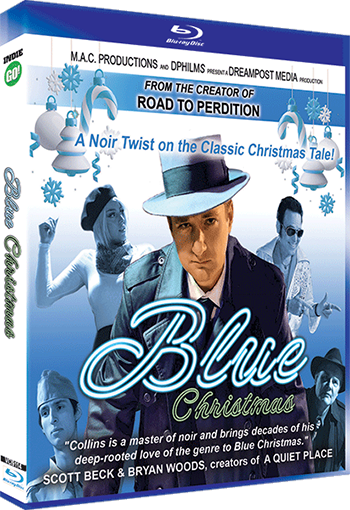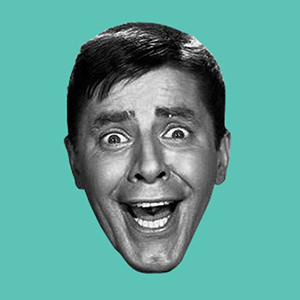FOR EASTERN IOWA FANS:
Our new movie Death by Fruitcake is screening at The Capitol Theater in Burlington, Wednesday December 10th at 7pm.
211 N 3rd St, Burlington, IA 52601
https://burlingtoncapitoltheater.com/events.html
Barb trims our Christmas tree beautifully, with an almost entirely pop culture flare. Here’s a shot of the STAR TREK section, especially for my buddy Rob Burnett.


It’s that time of year when I retread (with some new material as well) my opinions about Christmas movies. We’ll skip my five favorites (Scrooge, It’s a Wonderful Life, Christmas Vacation, Miracle on 34th Street and A Christmas Story) and move on to the 12 Days of Christmas Movies that aren’t on the Top 5 list.
1. Bad Santa (2003). This dark comedy has a warm heart, but you have to wade through a whole lot of black humor to get there. Billy Bob Thornton is wonderful, but here’s a special salute to the late John Ritter (who apparently died during the production) for the funniest moments in a side-splitting film. It’s become a Christmas classic at our house, and the very underrated sequel, Bad Santa 2 (2016), is perhaps even funnier with Kathy Bates almost stealing the picture playing Billy Bob Thorton’s mother, who deserves more coal than anybody in either picture.
2. Holiday Inn (1942) is easily better than White Christmas, although the latter has its charms – it’s helped keep Danny Kaye from being forgotten, for one, and my pal Miguel Ferrer’s mom is in it. The original has better songs and is funnier and ultimately more heart-warming. Fast-forward through the “Abraham” number with its cringeworthy Black stereotypes, less because I’m offended and more because it’s a truly terrible Irving Berlin song.
3. Bell, Book and Candle (1958) is the the movie Kim Novak and James Stewart made together right after Vertigo. With Jack Lemmon and Ernie Kovacs stealing scenes left and right, it’s a precursor to Bewitched and might seem a better choice for Halloween, only it’s set at Christmas. I love the George Dunning score (he did some of the best scores for the original Star Trek TV series).
4. The Family Man (2000) with Nic Cage, a modern reworking of It’s a Wonderful Life, heartwarming and funny. Cage may be an over-the-top actor, but the man commits – he gives one thousand percent to every performance, and this time he has a wonderful movie to do it in.
5. The Twelve Days of Christmas (2004). Okay, so it’s a shameless reworking of Groundhog’s Day as a Christmas movie, but this TV flick is funny and rewarding – good-hearted but with a darkly comic sensibility. Steven Weber is excellent as the successful slick businessman who has twelve tries to get Christmas Eve right. Molly Shannon gets her best post-SNL role.
6. Remember the Night (1940) is probably second best (after Double Indemnity) of the films Barbara Stanwyck and Fred McMurray made together. It’s written by Preston Sturges – should I really have to say anything more? – and makes its humanistic points with sentiment, not sentimentality. It’s really a gem worth looking for.
7. I, the Jury (1953). This much underrated first Mike Hammer movie is set at Christmas and plays off of that fact throughout, with Christmas cards and carols the connective tissue between scenes. I continue to feel Biff Elliott was much underrated, and the cast is filled with wonderful character actors. The great John Alton shot it. And it’s available on physical media from Classic Flix in an amazing set of Blu-ray, 4K and 3D discs (with contributions by me).
8. A Christmas Horror Story (2015) features William Shatner, excellent as the comic glue (a disc jockey) holding together inter-related stories about Krampus and Christmas. There are almost as many horror movies about Christmas as there are Christmas movies, but this is one of the best. It was put together by many of the Orphan Black people.
9. Office Christmas Party (2016) is a raunchy comedy whose preview in the theater (remember those?) turned me off. Somehow I wound up seeing it on Blu-ray and it’s very funny and eventually betrays a good heart. The great cast includes Jason Bateman and Kate McKinnon.
10. Scrooge (1970) is the second-best Christmas Carol movie. Albert Finney is wonderful as Ebenezer in this musical version, with the Leslie Briccuse score perhaps the one most like his work with Anthony Newley, who did not contribute to this score but who played in the much-seen British stage version (which came after the film).
11. Planes, Trains, and Automobiles (1987). This is perhaps the best representation of the comic talents of the late, very great John Candy and also co-star Steve Martin, game in an unflattering role.
12. Blue Christmas (2024). My micro-budget take on what has been described as The Maltese Falcon Meets A Christmas Carol. Some can’t get past the limitations of a micro-budget and frankly regional production. But I am proud of what we pulled off on an a mind-boggling $10,000…and grateful to those of you who have embraced it.

Here’s a review of French Film Noir Collection Vol. 2 (Kino Lorber), which touches upon my commentary (with the great Heath Holland) on two of the films.
Pearl Harbor day was yesterday as I write this. Here’s something that appeared a while back at ERB zine about my novel, The Pearl Harbor Murders.
Here’s where you can get Blue Christmas on physical media at a reasonable price.
Here’s how to watch it on TUBI.
M.A.C.

